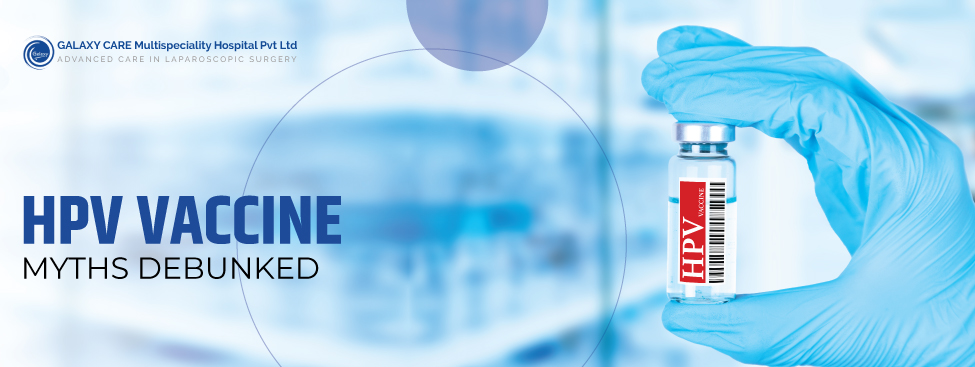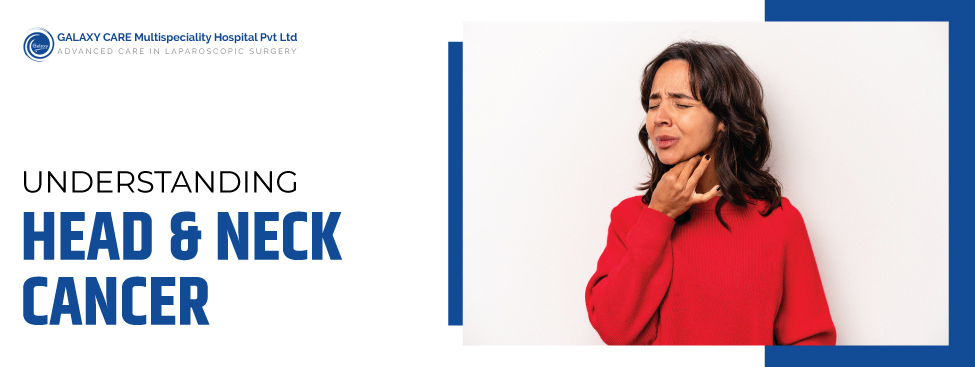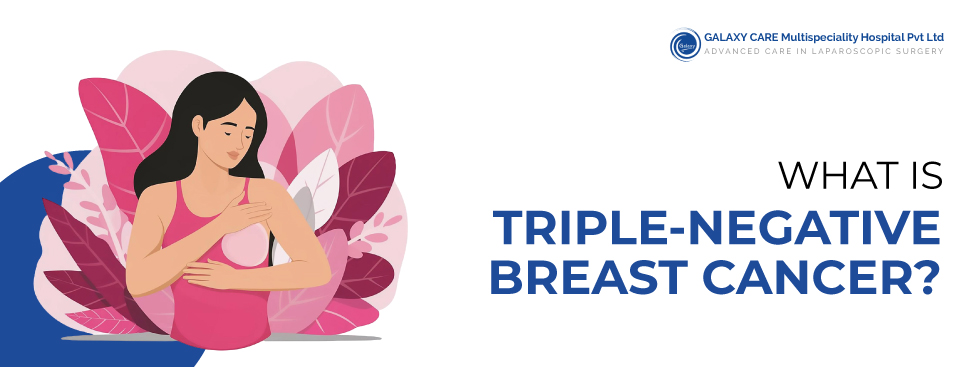
Preventing Cervical Cancer: HPV Vaccine Myths Debunked
Cervical cancer is a major health concern, affecting thousands of women around the world. One of the most effective ways to prevent this disease is through the human papillomavirus (HPV) vaccine. However, there are many myths and misconceptions surrounding the HPV vaccine that can deter people from getting vaccinated.
At Galaxy Care Hospital, the best cancer hospital in Pune, we believe in empowering individuals with accurate information about cancer prevention. Let us help you explore and debunk some of the most common HPV vaccine myths right away!
HPV Vaccine Myths Debunked
Myth 1: The HPV Vaccine is Not Safe
One of the most persistent myths about the HPV vaccine is that it is not safe. However, the HPV vaccine has been extensively studied and proven to be safe and effective. It has been approved by the World Health Organization (WHO) and various regulatory bodies around the world, including the Food and Drug Administration (FDA) in the United States.
The HPV vaccine has been administered to millions of women worldwide, and the available data shows that it has an excellent safety profile. Minor side effects, such as pain, redness, or swelling at the injection site, are common but generally mild and resolve quickly. Serious side effects are extremely rare and have not been causally linked to the vaccine.
Myth 2: The HPV Vaccine Causes Infertility
Another common myth is that the HPV vaccine can cause infertility in women. However, there is no scientific evidence to support this claim. The HPV vaccine does not affect a woman’s ability to get pregnant or have children.
The vaccine is designed to target the HPV virus, which can cause cervical cancer and other types of cancer. It does not target or interfere with the reproductive system in any way. In fact, by preventing HPV-related cancers, the vaccine can actually help protect a woman’s fertility by reducing the risk of cervical and other reproductive cancers.
Myth 3: The HPV Vaccine is Only for Girls
Another misconception is that the HPV vaccine is only for girls. While the vaccine is primarily recommended for girls and women, it is also recommended for boys and men. The HPV virus can cause various types of cancer in both genders, including anal, penile, and throat cancer. Vaccinating both boys and girls helps to create a “herd immunity” against HPV, reducing the overall prevalence of the virus in the population. This, in turn, helps to protect those who cannot be vaccinated, such as young children or immunocompromised individuals.
Myth 4: The HPV Vaccine is Only Necessary for Sexually Active Individuals
Another myth is that the HPV vaccine is only necessary for sexually active individuals. However, the HPV vaccine is recommended for children and adolescents, typically starting at age 11 or 12, before they become sexually active. Although recommended at age 11 or 12, you can also start it as early as 9.
The vaccine is most effective when administered at a younger age, as it helps to build a robust immune response and provides long-lasting protection. By vaccinating children and adolescents, we can help to prevent the development of HPV-related cancers later in life, even if they do not become sexually active until much later.
Myth 6: The HPV Vaccine is Too Expensive
Some people may be hesitant to get the HPV vaccine because they believe it is too expensive. While the cost of the vaccine can vary depending on the healthcare system and insurance coverage, many countries offer the vaccine free or at a subsidized cost as part of their national immunization programs. However, in India, the HPV vaccine is not yet fully subsidized, and individuals may need to bear the full cost. Despite this, the vaccine remains a critical tool in preventing cervical cancer, and many healthcare providers emphasize its importance in long-term health.
The Bottom Line
In conclusion, the HPV vaccine is a safe, effective, and important tool in the fight against cervical cancer and other HPV-related diseases. By debunking these common myths, we can help to increase vaccine acceptance and uptake, ultimately leading to better health outcomes for individuals and communities.If you or a loved one is concerned about cervical cancer or would like to learn more about the HPV vaccine, we encourage you to visit Galaxy Care Hospital, a leading Cancer Hospital in Pune. Our highly skilled cancer specialists in Pune are not only experts in their field but are also passionate about educating and empowering patients. We believe that informed people are empowered people, and we are here to support you in making the best choices for your health and future well-being. Now that you have your HPV vaccine myths debunked, consider booking an appointment and learn more.


